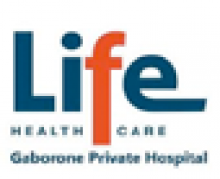A heart attack occurs when one of the arteries supplying blood to the heart muscle is suddenly blocked by a blood clot.
Summary
A heart attack occurs when one of the arteries supplying blood to the heart muscle is suddenly blocked by a blood clot.
Signs of heart attack include chest pain, sweating, breathing difficulty, dizziness, nausea, pallor.
Heart attack is a medical emergency. First aid focuses on helping the person take their heart medication, and having him sit still with knees bent.
What causes heart attack?
A heart attack occurs when one of the arteries supplying blood to the heart muscle is suddenly blocked by a blood clot. This causes permanent damage to the heart muscle. It may be fatal in some cases.
What are the symptoms and signs of heart attack?
- Chest pain or discomfort that is crushing, like a heavy weight; or squeezing, like a tight band around the chest; or an ache in the centre of the chest.
- The pain may radiate to the neck, jaw, shoulders, arms (especially the left arm), back, abdomen, face or teeth. The pain is persistent (longer than 15 minutes), and does not ease with rest.
- The pain is sometimes mistaken for indigestion. Note that in some cases, heart attacks are painless.
- Profuse sweating
- Difficulty breathing
- Feeling dizzy or light-headed
- Nausea
- Pale, clammy skin
- The pulse may be fast or irregular
- The person may suddenly collapse and lose consciousness.
Get help immediately if:
A person shows any signs of heart attack. Prompt treatment helps prevent further damage to the heart muscle and death.
First aid for heart attack
- If a person shows any symptoms or signs of heart attack, find out if there is a history of heart disease, and whether he takes any heart medication. Help him find and take their medication.
- Encourage the person to sit still, with knees bent to ease strain on the heart.
- Talk to him calmly and reassuringly, and loosen any tight clothing.
- Monitor any changes in condition.
- The person should take one aspirin with water (Unless he is allergic to or unable to take aspirin). Aspirin helps to prevent blood clotting.









